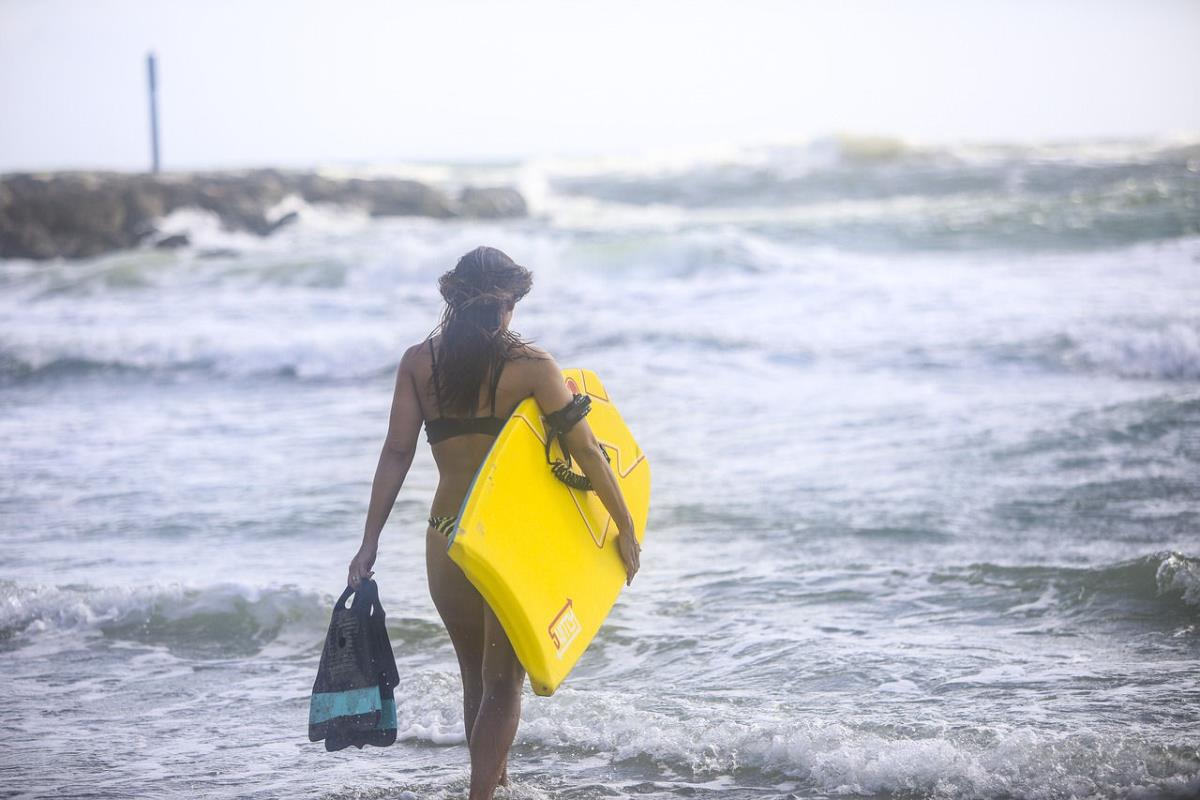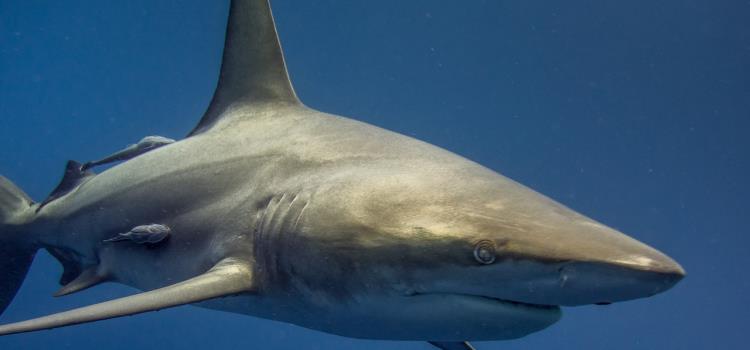
A woman is currently in serious but stable condition after experiencing a rare shark attack off the coast of New York City's Rockaway Beach on Monday evening. The incident, which occurred around 6pm local time, has left the beach community and authorities on high alert.
According to the NYPD's public information office, police swiftly responded to the scene at Beach 59th Street and Rockaway Beach Boulevard. The victim, a 65-year-old woman whose name has not been disclosed, suffered a shark bite on her left leg. Upon arrival, first responders found the woman unconscious, likely from blood loss or shock.
The injured woman was immediately transported to Jamaica Hospital Medical Centre. In response to the incident, the beach was promptly evacuated, and authorities employed drones and a helicopter to search for the shark, albeit unsuccessfully. As a result, swimming and surfing have been prohibited, and both Parks Enforcement and NYPD personnel will be patrolling the beach to ensure swimmers remain out of the water.
While shark attacks in the waters off New York City are exceedingly rare, recent years have witnessed a notable increase in shark sightings as they venture closer to the shore to seek warmer temperatures. Just north of Rockaway Beach, off the coast of Long Island, three shark attacks were reported last month alone. Furthermore, sand tiger sharks have been observed in significant numbers near the Long Island coast this summer.
The incident has prompted a reminder from the NYC Parks Department that shark bites in the area are exceptionally uncommon. While monitoring and managing marine species are not primarily under their purview, the department collaborates with NOAA Fisheries and NYS DEC, which regulate recreational and commercial fishing, including shark-related activities.
Officials underscored that lifeguards and beachgoers play a crucial role in spotting and reporting shark sightings. Upon receiving such reports, lifeguards assess the credibility of the sighting and may request NYPD flyovers for verification. Depending on the situation, lifeguards might direct swimmers to shallower waters or, in extreme cases, clear the water entirely.
Despite the unsettling incident, the city remains vigilant in its efforts to ensure the safety of beachgoers. As Rockaway Beach grapples with the aftermath of this rare occurrence, authorities will maintain heightened surveillance to monitor the potential presence of sharks along the coastline.

Sharks off the Coast of the United States: A Closer Look
Shark attacks are relatively rare occurrences along the coasts of the United States, where millions of people enjoy ocean waters every year. While these incidents often capture media attention, it's important to keep in mind that most shark species are not a threat to humans. Understanding some key facts about sharks and their behaviour can help provide context to the recent incident off New York City's Rockaway Beach:
Shark Diversity: The coastal waters of the United States are home to a variety of shark species, ranging from the iconic great white shark to the smaller and less aggressive sandbar sharks. Over 40 species of sharks can be found along the Atlantic coastline alone.
Migration Patterns: Many shark species have distinct migration patterns that bring them closer to shore during certain times of the year. For instance, during warmer months, some species move closer to coastal areas in search of prey, which can include smaller fish and marine mammals.
Shark-Human Interactions: While rare, interactions between sharks and humans do occur. Sharks primarily rely on their keen sense of smell and electroreception to locate prey, and incidents involving mistaken identity can sometimes lead to interactions with humans.
Safety Measures: Beaches across the United States implement safety measures to mitigate potential shark-human interactions. Lifeguards are trained to monitor the waters for any signs of sharks and to promptly notify beachgoers if necessary. Swimmers are often advised to avoid swimming during dusk and dawn, times when some shark species are more active.
Conservation Efforts: Conservation efforts are crucial to maintaining healthy shark populations. Many shark species are facing threats due to overfishing, habitat degradation, and bycatch. Regulations are in place to protect certain species, and efforts to raise awareness about sharks' ecological importance are ongoing.
Educational Initiatives: Organisations and marine institutions conduct educational programs to help people better understand sharks and their role in ocean ecosystems. These initiatives aim to dispel myths and foster a deeper appreciation for these ancient creatures.
Citizen Science: The public can contribute to shark research through citizen science initiatives. Reporting shark sightings, behaviour observations, and participating in tagging programs helps scientists gather valuable data to enhance our understanding of shark behaviour and movement.

While the recent shark attack off Rockaway Beach is a reminder of the unpredictable nature of marine environments, it's also an opportunity to learn more about these enigmatic creatures. The incident underscores the importance of balanced reporting and responsible coastal management practices to ensure the safety of both beachgoers and the marine ecosystem.
As we continue to enjoy the coastal beauty and recreational opportunities that the oceans provide, let's also strive to coexist harmoniously with the diverse marine life that inhabits these waters.
Share this story:
Tweet












